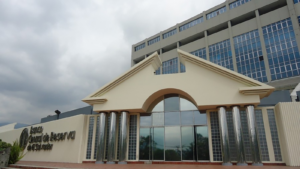
Courtesy
The Inter-American Development Bank (IDB) reaffirms its commitment to the Sustainable Development Goal of Zero Hunger by 2030. This effort focuses on improving food security in Latin America and the Caribbean, a region with significant challenges in terms of food access and sustainability. Through the “Seeds for Food Security in Latin America and the Caribbean” series, the IDB seeks to foster dialogue, raise awareness and promote concrete solutions to eradicate hunger and ensure nutritious and sustainable food for all.
One of the featured events was Resilience Credit: Innovations in Shaping New Markets for Food Security. This forum explored how resilience credit can mobilize financing for smallholder farmers in the most rural areas of the region. These financial tools have the potential to strengthen farmers’ productive capacities, improve nutrition and increase food availability in vulnerable communities.

Another significant event was the presentation of the Global Food Policy Report 2024, developed jointly with the International Food Policy Research Institute (IFPRI). This report addressed the challenges of transforming agrifood systems in the region, promoting healthy, sustainable and affordable diets. It also highlighted how public policies and technological innovations can contribute to improving quality of life and combating hunger in the region.
In the framework of World Food Day, the IDB organized the seminar Agrobiodiversity: Ensuring sustainable food in Latin America and the Caribbean. This event highlighted the relevance of agricultural diversity to ensure sustainable, varied and nutritious food production. Agrobiodiversity not only strengthens food security, but also contributes to environmental sustainability and resilience in the face of climate change.

The IDB continues to work together with governments, international institutions and local communities to achieve Zero Hunger in Latin America and the Caribbean. Through these initiatives, the institution not only promotes innovative solutions, but also reaffirms its commitment to sustainable development and social justice in the region.







